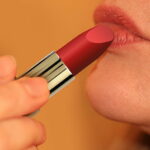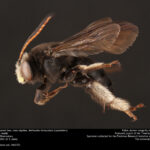In today’s beauty industry, it’s no secret that many manufacturers use animal testing to perfect their products. There’s an ethical dilemma that faces many of us: do we buy products that have been tested on animals, or will we choose to opt for cruelty-free products? Kose is a popular beauty brand, and many wonder if it adheres to a cruelty-free policy – or not. We take a closer look at the truth behind ‘Is Kose Cruelty Free?’ and dive deep into the debate.
Table of Contents
1. Exposing the Myth: “Is Kose Cruelty-Free?”
For years, consumers have wondered “Is Kose cruelty-free?” and if the company truly stands behind their values of no animal testing. This discussion is still relevant today and can be confusing. Despite many campaigns, and promises from Kose, many of the ingredients found in their products have yet to be certified cruelty-free.
- Badger Oil: One of the main controversial ingredients used in Kose products is badger oil. The majority of Kose distributers use badger oil, which many believe to be inhumanely sourced. It has never been certified as cruelty-free in any country.
- Almond Extract: One of the most popular ingredients in Kose products is almond extract. Although it is widely believed to be animal-friendly, it is not officially certified as cruelty-free. It requires co-operation from local farmers and questions have been raised about where the ingredients come from.
- Lanolin: Another ingredient used in many of Kose’s products is lanolin. Although it is seen as a more natural oil, some animals are killed during the process of extracting this ingredient. It has been deemed humane under certain circumstances, but many are still unsure as to whether Kose’s sourcing is truly cruelty-free.
The true answer to the question “Is Kose cruelty-free?” remains elusive. Although the company has made efforts to ensure that animals are not harmed during the production process, the truth remains that many of their ingredients have yet to be officially certified. As a result, consumers are left with conflicting information, and are unable to make an informed decision about whether Kose products are truly cruelty-free or not.
2. Nailing Down the Facts About Kose’s Animal Testing Policy
At Kose we believe that an animal testing-free environment is the right way to create beauty and maintain ethical standards. The world is shifting towards more humane practices around cosmetics, and understanding what our policy is about is key.
So what is Kose’s stand on animal testing?
Kose has long been a leader in cruelty-free cosmetics and skincare. We are proud to report that we do not test any of our products or ingredients on animals. We never have and we never will. The answer to the question “Is Kose cruelty free?” is absolutely yes.
We carry out our own in-house safety tests on ingredients and products using non-animal based methods and rigorously examine our products for the safety of our customers. We also require that none of our suppliers test on animals either. We proudly remain at the forefront of the cruelty free beauty movement.
At Kose, we are committed to creating powerful, innovative, and beautiful products, while respecting every living creature. Our pledge to never test on animals helps keep us accountable to this statement.
We eagerly believe in creating beauty without cruelty and invite our customers to join us in this imaginative and compassionate journey.
3. Taking a Closer Look at Kose’s Parent Companies
Kose was founded in 1946 and since then has become one of the leading skincare and beauty companies in Japan. Is Kose cruelty free? To answer this question, it’s helpful to take a look at its parent companies.
Kose’s parent company is the Japanese conglomerate Kose Corporation which is itself owned by two of Japan’s top corporations: Ajinomoto and Toto. Ajinomoto is a Japanese food and beverage company founded in 1909 that produces ingredients used globally in American, European, and Middle Eastern markets. Toto is Japan’s leading plumbing manufacturer that dates back to 1917.
Kose Corporation also promotes sustainability efforts on behalf of their parent companies. For example, they’ve implemented lignin use from Ajinomoto to replace petroleum-based petrochemical ingredients in Kose’s beauty line. Ajinomoto has also conducted animal testing, however, they claim it is not conducted with cruel methods.
Kose’s parent companies have different policies when it comes to animal testing. As such, it is difficult to answer is Kose cruelty free? satisfactorily. While neither Ajinomoto nor Toto conducts animal testing directly, it is likely that some of their ingredients are tested on animals. Additionally, Kose’s cruelty free approach could be undermined by the policies of their parent companies. Ultimately, this prevents them from obtaining the Leaping Bunny certification.
4. Kose’s Commitment to the Global #BeCrueltyFree Campaign
Kose is committed to the global #BeCrueltyFree campaign in its effort to end animal testing for cosmetics. As a pioneer in skincare, Kose recognizes its responsibility in helping to achieve this goal. For Kose corporate philosophy is to pursue beauty through harmony between people, the planet and its ingredients. The company strives to address this balance by ensuring each product is Kose cruelty free.
Kose has been a vocal leader in global cruelty-free cosmetic production. As part of this commitment, Kose strictly adheres to bans on animal testing. The company does not conduct any type of animal experimentation, including finished products, materials, and ingredients. This also includes its suppliers, who must adhere to the same strict criteria.
Kose also has a commitment to ethical sourcing. The company takes into account animal welfare and sustainability when selecting and sourcing their ingredients. Kose partners with animal welfare organisation and has put in place a series of measures to ensure the safety of the ingredients used in its products. This includes but is not limited to:
- Gene-based engineering-free ingredients.
- Ingredients not known to cause skin irritation.
- Ingredients from sustainable sources and/or cultivation methods.
5. The Pros and Cons of Shopping Kose Cruelty-Free
Shopping Kose Cruelty-Free has its advantages and disadvantages. Let’s take a look at what they are.
Pros
- Kose products are free of animal testing. This is an important aspect for shoppers who are looking for cosmetics that respect animal welfare.
- Kose has an extensive range of vegan and cruelty-free products to choose from.
- The brand is constantly innovating and producing new products that are not tested on animals.
Cons
- Kose is not 100% cruelty-free. The brand is still actively selling in countries such as China, where animal testing is mandatory for certain products.
- Kose products may be more expensive in some markets than their animal-tested counterparts.
- Not all their products are labelled with their cruelty-free status. Customers wanting to purchase only ethical products would need to do some research to find out if a product is animal-free or not.
The pros and cons of Kose certainly need to be taken into consideration when making a buying decision. Some shoppers may still be wary of shopping Kose as it is still not 100% cruelty-free. However, if shoppers are looking for cruelty-free goods, Kose is an excellent option. Ultimately, the answer to the question, ‘Is Kose cruelty-free?’, is a definite yes.
6. Uncovering the Truth: Is Kose Truly Cruelty-Free?
The beauty industry has seen an explosion of growth in recent years. People have become increasingly conscious about what they use on their skin, which has led to the rise of cruelty-free cosmetics. But while many companies proudly advertise themselves as cruelty-free, the truth is not always clear. The company Kose, for example, has been met with some suspicion. Let’s dive in and answer the question: is Kose truly cruelty-free?
Animal Testing
As a first step to finding out if Kose is cruelty-free, let’s look at their stance on animal testing. Animals have long been used to test out cosmetics and skincare, to determine the safety of the products and their effects on humans. Kose has vehemently denied engaging in any animal testing, both in the development of their products and in the finished products. So, in this sense, the answer to is Kose cruelty-free? is Yes.
Third-Party Testing
Apart from Kose’s own stance on animal testing, it is also important to take into consideration any third-party testing that could potentially be done in other countries. Kose has stated that they continue to conduct research and development without animals, and they do systematically check with their suppliers to confirm that none of their ingredients are tested on animals. This is an important step that Kose is taking, to make sure that their position on animal testing remains true.
Finally, Kose also does have an established policy that they will not use any ingredients from companies that use animal testing. This allows them to be in compliance with EU law, even if their products are manufactured or sold in non-EU countries. So overall, the answer to is Kose cruelty-free? is Yes.
7. Making an Informed Choice: Shopping with Kose Cruelty-Free
Everyone wants to make informed choices when it comes to spending their money on beauty products – and Kose cruelty-free shopping allows for just that. But, what exactly does cruelty-free mean? And, is Kose cruelty-free?
Cruelty-free makeup does not involve animal testing or testing on animals for that matter. This is why Kose makes a conscious effort not to take part in such practices. Instead, Kose focuses on only the safest methods for testing out their products. Is Kose cruelty-free? Yes! Kose is proud to not subject animals to unnecessary testing and instead focus on quality products that are safe, comforting, and efficient for people to use.
Kose has become even more conscious when it comes to animal welfare. This includes a fully vegan line of products, formulated using only ethically-sourced ingredients and biodegradable packaging materials. Not to mention, Kose is also passionate about sustainability and upholds that in its practices too.
Therefore, it’s safe to say that when shopping with Kose, you’d be getting cruelty-free, sustainable, and vegan products. Below are a few other perks of shopping with Kose:
- No animal testing
- Quality products
- Ethically-sourced ingredients
- Environmentally conscious
- Efficient packaging
- Vegan products
Overall, Kose takes its cruelty-free commitments very seriously, making sure that everyone shopping with them has access to safe ingredients that result in quality products and guarantee ethical standards.
As the debate around animal testing continues, we hope that this article has helped to clear up some of the grey areas around Kose and the use of animal testing in its production. By providing thorough and unbiased research, we hope that everyone can now make a fully informed decision on whether or not to buy Kose products.
The debate surrounding the question of whether or not Kose is a cruelty-free brand has often been a heated one, and the issue of animal testing within the Japanese beauty industry as a whole is one that is rarely discussed. This has caused a great deal of confusion and speculation to occur as consumers around the world struggle to determine just how ethical the products they are purchasing truly are.
In order to understand the truth behind whether or not Kose is a cruelty-free brand, it is important to examine their commitment to the ethical testing of their products. Unfortunately, brands such as Kose are not legally bound in Japan to practice animal testing, as it is not a requirement for cosmetic production. This means that Kose does not test their products on animals at their own facilities nor do they have them tested by external organization.
The company has, however, expressed commitment to the idea of developing alternative testing methods that would be acceptable to the industry without involving animals. Kose also adheres to the International Cooperation on Cosmetics Regulation (ICCR) which promotes the use of alternative testing methods such as in-vitro testing rather than animal testing.
Despite Kose’s commitments to animal testing alternatives, the company admits that some of their third-party suppliers may still use animal testing methods for different types of products and ingredients. Kose claims that these suppliers are contractually responsible for complying with laws and regulations in relation to animal testing, and that the company regularly monitors them.
Ultimately, whether or not Kose is a cruelty-free brand all comes down to personal choice. While the use of animal testing by the company’s third-party suppliers cannot be completely ruled out, there is evidence to suggest that their commitment to alternative testing methods indicate that they take this issue seriously. Moreover, the company’s efforts to ensure that their third-party suppliers adhere to relevant laws is a positive step in the right direction.


